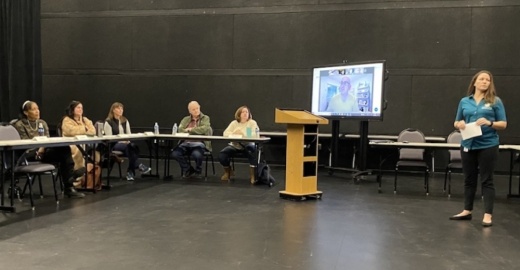Several nonprofit representatives met with the advisory committee during the second public hearing on Dec. 7 to add public input on neighborhood needs, social service priorities and affordable housing issues in Lewisville.
The city will receive about $784,000 from the U.S. Department of Housing and Urban Development that must be used primarily to assist low-to-moderate income residents and areas.
No decisions on the funds were made during the meeting, but the discussion will be used to guide future decisions.
Representatives from the community groups included Marty Mascari, contract housing navigator for North Central Texas Aging and Disability Resource Center, which is an initiative through the U.S. Department of Health and Human Services.
He recommended the group allocate funds to work with tax credit consultants to find how Lewisville can be competitive to bring in developers who build affordable housing options. Affordable housing is becoming less available, and it is getting worse, he said.
Anna Sung with Communities in Schools of North Texas said mental health resources for children are vital. For the first time, suicide is the leading cause of trauma death, Sung said. Her research was based on numbers provided by Cook’s Children Health Care System. Last year in Lewisville, there were seven suicide deaths and more than 40 young patients admitted for a suicide attempt, which is double what was reported the previous year, Sung said.
“There are mental health needs in our community,” she said.
Homeless intervention and prevention needs are also prevalent in the Lewisville community, said Daphne Adams, director of programs at Christian Community Action.
This year, her team has housed 16 people who are homeless while also working with more than 40 other people and families who were displaced.
Adams recommended CDBG funds be used to prevent homlessness and to offer financial help before eviction and offer resources such as adult health care and affordable housing.
“We work with them to the best of our ability,” she said.





